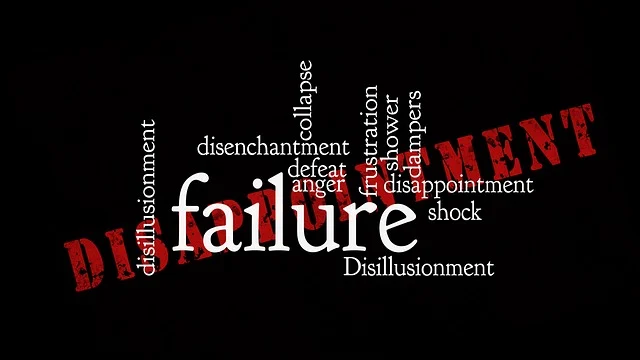If you can understand how to handle failures then your personal and professional development will inevitably get a boost. However, exactly what counts as a failure may vary: such as learning from the story of herding in Carmen all night from tonight when the sheep could still be herded in; how to deal with failures in exams at parties or on your way through secondary education; also how to manage disappointment as well as for oneself in any project at all for example If Others Fail As Well Even though failure is something that can’t be got rid of there is no need to think one’s self a flop just because of it. Rather, it makes us who we are, it schools us, and it prepares us for future challenges.” In this article, we are going to push back at the failures and misfortunes that life hands us. There are eight recommendations for overcoming obstacles. You can escape from disappointment by acknowledging the psychology behind failure, and by taking an active mind into action. This is to address concrete methods of dealing with setbacks when they arise.
Psychology of Failure

Emotions after Failure
In understanding how to deal with failures is the recognition of the emotional impact this may have. Failures often lead to feelings of sadness sorrow and self-doubt, whether they be test-taking ones or happenings in life itself. These emotions are perfectly normal but can be tamed and countered if one recognizes them and focuses on recovery strategies.
Cognitive Responses to Setbacks
Our cognitive responses to setbacks significantly influence how we deal with failures and disappointments. Negative thoughts can boost failure’s impact, while a growth mindset magnifies setbacks from falling into opportunities for learning and improvement.
Causes of Failure and Misfortune
Unrealistic Expectations
Unrealistic expectations are a common cause of misery and disappointment. Whether it’s how to deal with failures in exams or life, set realistic goals for yourself. Realistic aims help you maintain motivation levels over the long term and lessen the chance that setbacks will overwhelm you.
Fail without preparation
Preparation is one of the important angles of a failing experience. Inadequate preparation can often lead to dismal results and subsequent failure, especially on tests. By planning thoroughly and preparing well, there can be a big improvement in success.
External Incidents
Factors beyond our control often contribute to failures and disappointments. Realizing this can help reduce self-blame and focus on aspects that we can change. This perspective is important for knowing how to respond when failure strikes in life.
The Benefits of Experiencing Failure
Learning Experience
Failure provides a learning experience of great value. Every failure is a step on an ungambling journey to another success. This is an important aspect of how to deal with failure and turn it into a stepping stones for future victories.
Building Resilience
Experiencing and overcoming stages of failure builds resilience. This resilience will help people face future challenges more effectively. Learning how to deal with disasters and see opportunities from them is an exercise in coming back from setbacks.
Improving Problem-Solving skills
Failure forces us to think hard and hone certain problem-solving abilities. This is of particular importance in gaining experience about how to overcome life’s trials as well as any challenging situation.
Methods to Deal with Setbacks and Disappointments

Acceptance and Claim
The first step when coping with failure is admission. Admit that setbacks are part of life. Admitting defeat is actually a good thing in moving on and looking for what to do next.
Analyzing and Learning from Errors
The examination of your mistakes is a key part of how to deal with failures. Thinking over what happened and why can rob you of repeating this kind of mistake in the future. It is beneficial in personal growth processes.
Try to Make Goals Realistic
What happens to one when he sets realistic goals? Many times, that person is relieved of the pressure from failures and big defeats. Realistic goals are attainable, helping to sustain momentum heading into the last few yards, hence reducing chances of catastrophic setbacks.
The Power of Positive Thinking
Positive thinking in learning how to deal with failures is a very powerful tool. It changes the focus from poor outcomes to potential learning experiences beyond that suffering. It establishes a more resilient and responsive way of dealing with setbacks.
Using Affirmations
Incantations are positive statements that can help cultivate a positive mindset. If you use incantations every day, you can develop confidence and the ability to effectively deal with failures and disappointments in life.
People for Depend
This is a very important point in learning how to deal with failures. Surround yourself with friends and relatives who encourage and support you; this resilience ability increases dramatically.
Practical Steps to Overcome Setbacks
Put Together An Action Plan
This shows what you should do after a setback. Thus it is something of a re-insurance policy to fall back on. So helping get a solid step ahead.
Feedback
Feedback: Seeking feedback is vital in understanding how to deal with failures at exams and in other areas. Constructive feedback provides insight into what went wrong and advice on how to succeed. It makes sense of the past, and that makes future achievement easier.
Persistence
Persistence in learning how to deal with failures and disappointments is key. Staying committed to your goals, even after setbacks will serve you well in the end. Persistence will build you up and better your future chances of success.
Building Emotional Resilience
Understanding Emotional Resilience
People who can adapt to setbacks and recover from them are emotionally resilient. This concept is an important one in how to deal with failures in life effectively–life goes on even after serious blunders.
Ways to Improve Emotional Resilience
Building Emotional Resilience. Techniques include mindfulness, meditation, and some stress management. These methods keep you calm and focused when things are not going well, making it easier to cope with failures.
Benefits of Emotional Resilience
Emotional resilience benefits by greatly improved mental health, better stress management skills, and greater ability to recover from setbacks. These are crucial aspects in how to deal with failure and disappointment.
The Role of Self-Compassion
Practicing Self-Compassion
Practicing self-compassion means being kind to yourself when you fail.(Otherwise, it becomes impossible to live with failure and disappointment without berating oneself violently.)
Self-Compassion vs. Self-Esteem
Self-compassion does not equate with self-esteem. While self-compassion is about understanding and kindness, self-esteem concentrates on judgment. It helps in tackling failures more constructively.
How Self-Compassion Helps in Recovery
Self-compassion supports recovery by encouraging positive thinking and cutting down on negative self-talk. Such an approach is vital in learning how to deal with failures in life.
The Importance of a Growth Mindset

Fixed vs. Growth Mindset
In how to deal with failure, a growth mindset is essential; while a fixed mindset sees abilities as unchanging, a growth mindset regards failure as an opportunity for development.
How to Cultivate a Growth Mindset
Growing a growth mindset consists of embracing challenges, persisting through setbacks, and also taking effort as an avenue towards mastery. This is key in how to deal with failure and disappointment effectively.
Impact of a Growth Mindset on Dealing with Failure
People with a growth mindset manage how to deal with failures better than those using a fixed one. When they fail, they transform setbacks into valuable learning experiences that breed resilience and ongoing improvement.
Learning from Successful People
Celebrities Who Had Reversible Failures
Many successful people have experienced significant setbacks. From their experiences, we can learn how to deal with failure in life.
Lessons from Their Experiences
From the experiences of successful people who failed but ultimately succeeded, some key lessons emerge resistance, endurance, and remaining positive attitude will lead everyone to victory whatever happens
Conclusion
An important life skill is learning to deal with failure. By getting to understand the psychology of failure, setting oneself reachable goals, and maintaining a positive attitude, you will be able to do more with less. In short, it is said that ultra-successful beings view their failures as learning experiences. Nowadays failure is not viewed negatively, but instead used to hawk resilience and exercise one’s problem-solving skills, nurture hope for the future and lead to long-term success.






















